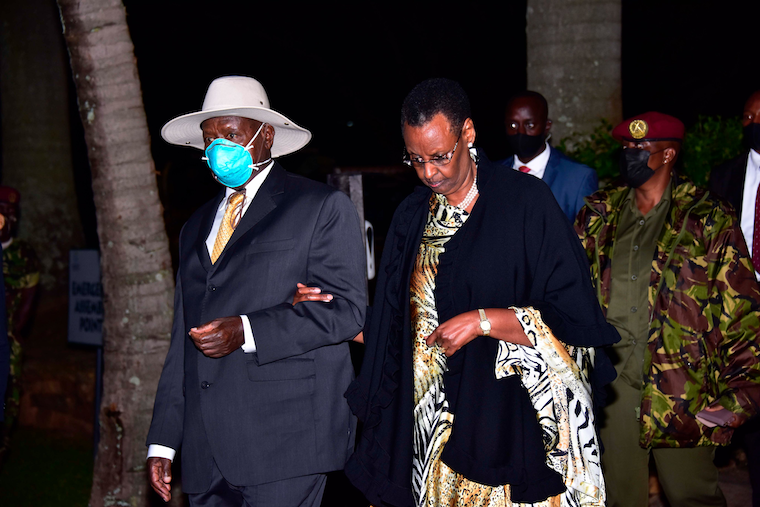President Yoweri Museveni with wife Janet Museveni President Yoweri Museveni kicks off his sixth five-year term today, carrying the heavy burden of debt at a time when the economy is reeling from the effects of the coronavirus pandemic.
Museveni is already struggling to finance a large public expenditure bill, with the number of ministers and members of Parliament already at a record high.
Most of the promises that Museveni made, such as the construction of roads and other infrastructure, in his manifesto will not be met as the debt levels go up.
DEBTS
With debt levels now at 47 per cent of the gross domestic product, Uganda is within touching distance of the East African ceiling of 50 per cent – a level thought to be unsustainable and risky.
In monetary terms, the total public debt amounted to $15.27 billion at the end of June 2020, up from $12.55 billion a year earlier, according to the latest National Budget Framework Paper 2021, prepared by the ministry of Finance, Planning and Economic Development. The paper adds that the levels will reach 49.9 per cent of GDP by June 2021.
The IMF recently announced that it is holding discussions with the Uganda government for a financial bailout as growth remains down partly as a result of the coronavirus pandemic.
High and unsustainable debt levels usually constrain growth. It means that a lot of money from the national budget goes to pay off some debts first before the government can invest in priority areas. High debt levels also mean that financial institutions worry about lending money to the government, and those that do, peg a higher interest rate on the credit.
Ultimately, it means that the government borrows more money from the domestic banking system, crowding out the private sector in need of loans. In the end, interest rates in the market tend to shoot up if the country is heavily indebted.
OIL PRODUCTION
Uganda is expected to start producing oil in the first half of 2025, in what is expected to transform the country into a near modern state.Museveni, together with his Tanzanian counterpart, Hassan Samia Suluhu, oversaw the signing of three key agreements in April – the Host Agreement, the Shareholders Agreement and the Transport Tariff Agreement – in April.For Museveni, it was a culmination of nervous negotiations with French oil major Total E&P, which saw the country make some critical tax concessions to ensure the […]
